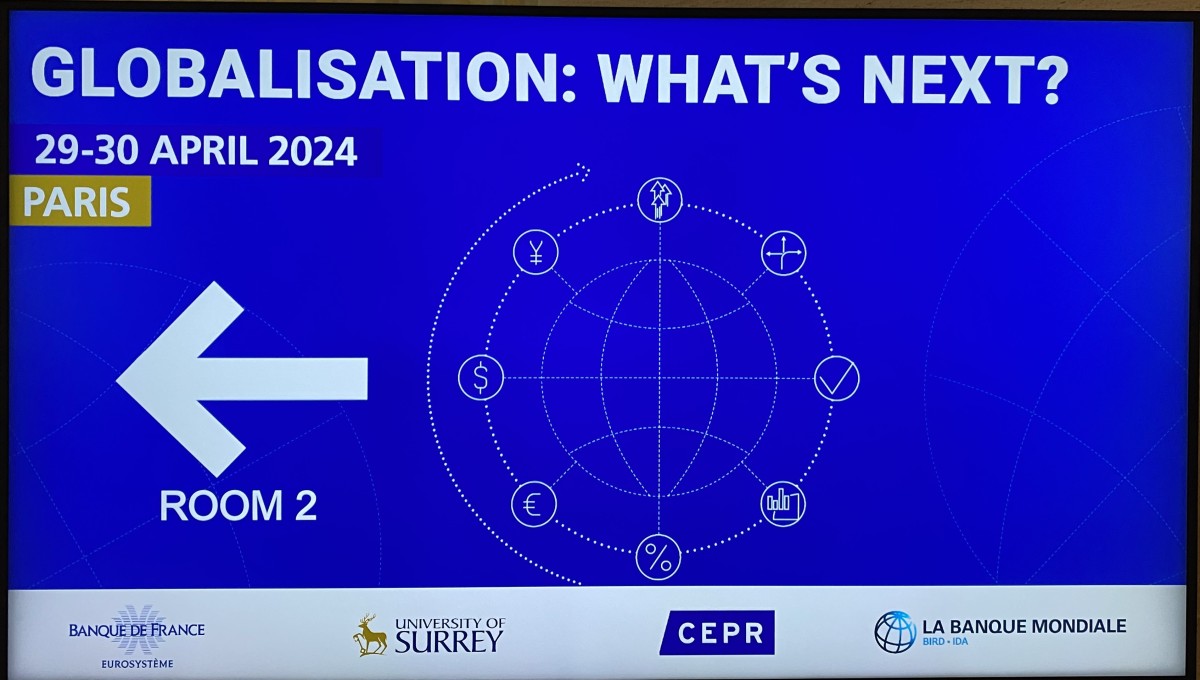Globalisation: what’s next?
Surrey Business School, the School of Economics, Banque de France and the World Bank organised a world leading conference on 'Globalisation Strategic Autonomy and Economic Resilience in Times of Crisis' held in Paris on 29 and 30 April 2024.

This was the fourth edition of an event that every year is gathering more attention from top academics and policymakers around the world.
Juan Carluccio, Professor in International Trade at Surrey Business School, and Maurizio Zanardi, Head of the School of Economics and Professor in Economics at the University of Surrey, were pleased to be able to welcome students, guests and speakers to this year’s conference where academic discussions on the policy implications of international trade and finance matters took centre stage.
The world is undergoing tremendous change, generating essential challenges for firms, governments and individuals. The decades-long process of globalisation is currently reversing under the forces that shape divisive geopolitics, a movement that was firstly fuelled by the pandemic and the associated disruptions to global supply chains, as analysed in the preceding conference.
This year, the conference included top guest speakers and academics. Highlights were the keynotes Professor Douglas Irwin, Professor of Economics at Dartmouth College and member of the influent Peterson Institute for International Economics think-tank, and Dr Claudia Buch, Chair of the Supervisory Board at the European Central Bank.
Professor Irwin is a world-leading expert in the study of the history of globalisation, and his talk evolved around the key question of 'Is globalisation in retreat? A historical perspective'. Focusing on international trade, he showed that the current period can be seen as a turn of history, in which the return of geopolitical considerations is driving a new era of globalisation in which state power, rather than free markets, will be a driver of international trade.
Dr Claudia Buch provided a complementary view by focusing on international finance. Her speech analysed the extent to which the euro area is integrated through banking and capital markets, highlighting that the context in which these markets operate has become more uncertain due to the evolutions of globalisation.
The other papers presented at the conference focused on the analysis of key recent developments related to the uses of trade policy, notably the impact of economic sanctions, the role of product standards in the use of clean technologies, the impact of macroeconomic movements on protectionism and the role of tax heavens.
Professor Juan Carluccio, thanks to his double affiliation with Surrey Business School and Banque de France, was key to co-hosting this event, which offered much-deserved visibility for the work and forward-thinking agenda of research carried out in Surrey.
